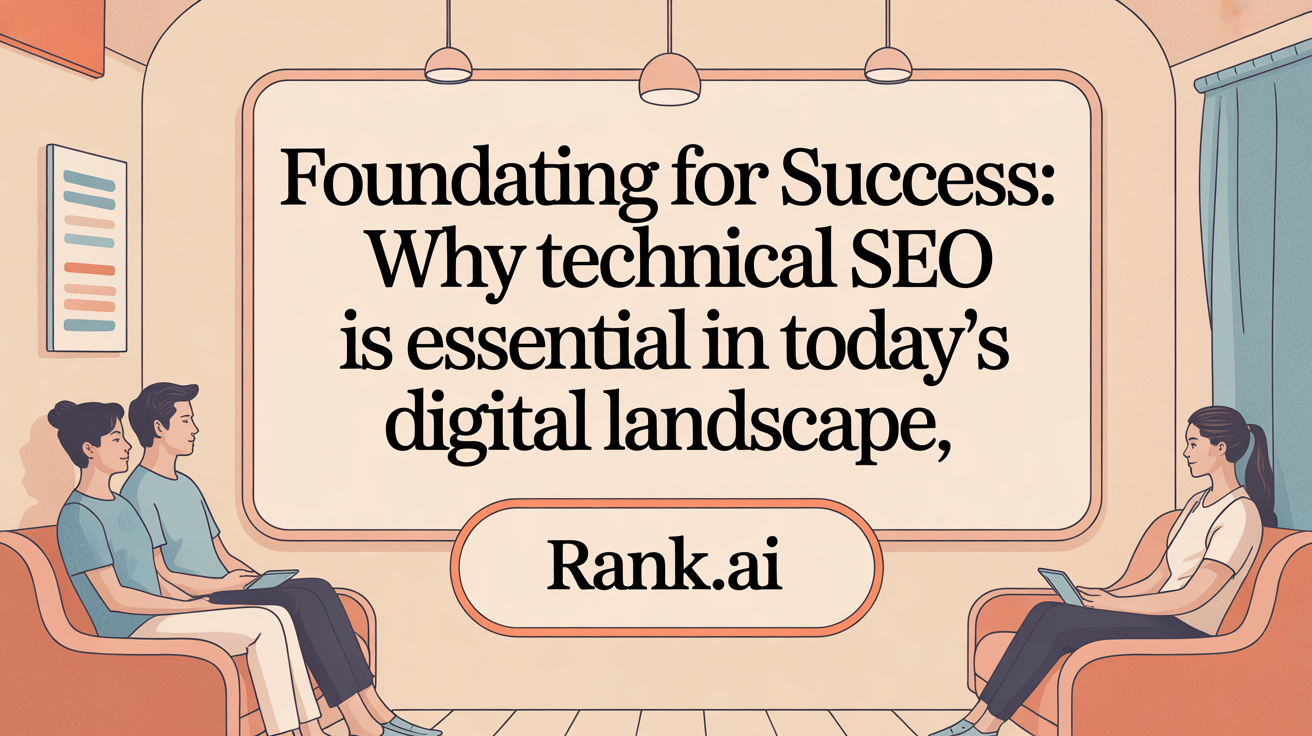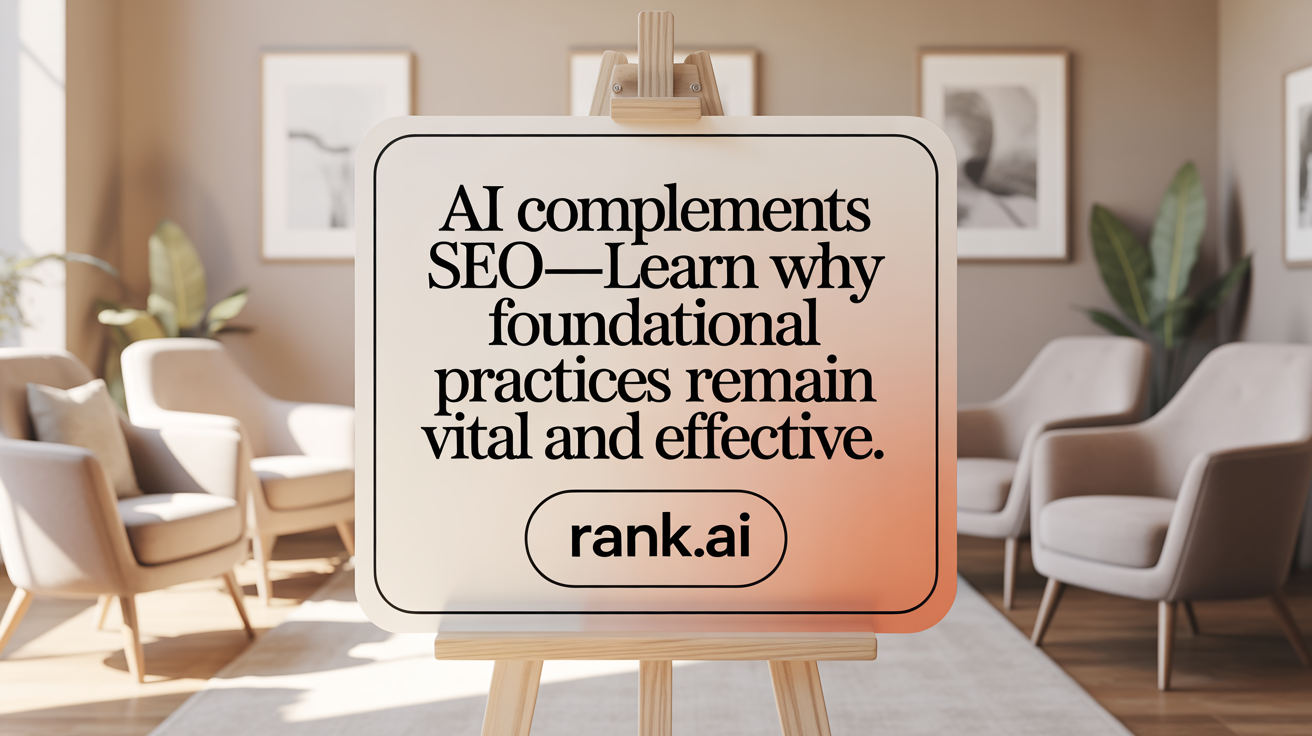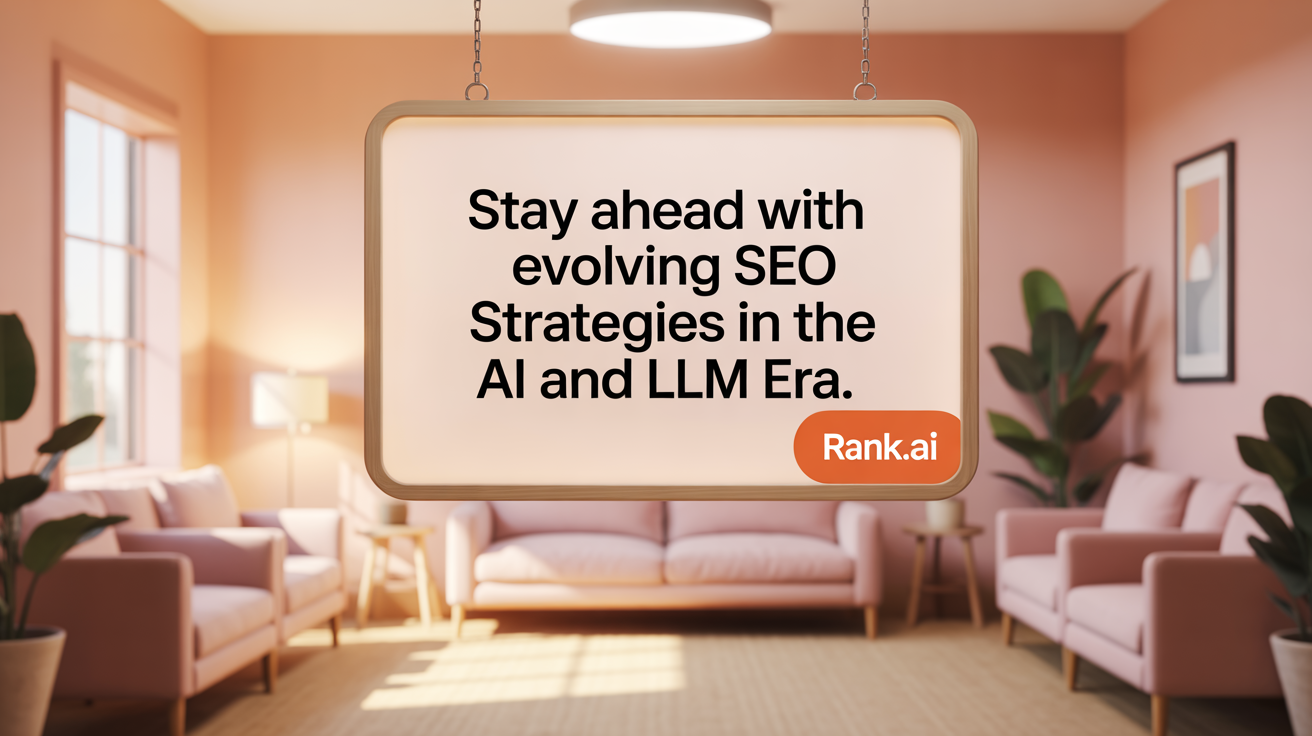Understanding SEO’s Enduring Foundation in the AI Era
As artificial intelligence transforms the digital search landscape, many question whether traditional SEO, especially technical SEO, remains relevant. While AI reshapes how search engines deliver results—favoring AI-powered summaries and conversational answers—the underlying principles of SEO persist and evolve. This article explores why technical SEO remains indispensable, how AI impacts SEO strategies, and what businesses must do to thrive in this new era of search.
What Is Technical SEO and Why Does It Matter Today?

What is technical SEO and why is it important?
Technical SEO is the process of optimizing the core technical aspects of a website to improve its visibility and ranking on search engines. It focuses on ensuring that a website’s structure, code, and performance allow search engines to easily crawl, index, and understand the content.
This includes improving site speed, making the site mobile-friendly, ensuring that navigation is logical and accessible, and implementing schema markup for better comprehension. These technical components form the foundation that supports higher rankings and better organic traffic.
Search engines such as Google rely heavily on technical signals to evaluate and rank websites. A solid technical SEO foundation enables search engines to efficiently index your pages with minimal errors and maximum relevance. Additionally, technical SEO enhances user experience by reducing load times, improving navigation, and ensuring content is accessible across devices.
Core elements of technical SEO include optimizing site speed through techniques like caching, image compression, and minimizing code; ensuring the website is mobile-responsive; and establishing a clear, logical site architecture with proper URL structures. These efforts align with Google's Web Vital metrics, especially Core Web Vitals, which directly influence rankings.
A well-optimized technical setup not only improves indexing but also supports other SEO activities such as content optimization and link building. Without a strong technical foundation, other SEO strategies may be less effective, and search engines might overlook or misinterpret your content.
In today’s fast-paced digital environment, user experience and site performance are both critical factors. Search engines prioritize websites that load quickly, are easy to navigate, and provide a seamless browsing experience across all devices. Therefore, technical SEO remains a vital aspect of digital marketing, ensuring your website remains competitive in a landscape increasingly driven by AI and user-centric ranking signals.
How AI Has Transformed SEO Practices

How has SEO changed with the rise of AI technologies?
The advent of AI has dramatically reshaped the SEO landscape. Traditional SEO focused mainly on keyword matching and basic link building. Today, AI-powered search engines, such as Google with systems like RankBrain and BERT, prioritize understanding user intent, context, and natural language. This shift means that SEO now emphasizes creating content that answers specific queries comprehensively.
AI models analyze vast amounts of data to interpret meaning beyond specific keywords, emphasizing the importance of well-structured, authoritative, and relevant content. Content must be tailored for AI understanding, incorporating structured data like schema markup and logical site architecture. Additionally, brands are increasingly utilizing AI tools for keyword research, content optimization, and ongoing SEO improvement.
Tools powered by AI automate many aspects of SEO, including analyzing search intent, identifying content gaps, and providing actionable insights for better targeting. This continuous process supports adapting content strategies in real-time, ensuring higher visibility in AI-driven search results.
The integration of AI models like RankBrain and BERT into search algorithms enhances their ability to comprehend complex queries and user behavior. This has led to a focus on intent-based optimization, where a single piece of content can rank for multiple related queries due to semantic understanding.
In essence, SEO has become more sophisticated, data-driven, and dynamic, requiring marketers to leverage AI insights and adapt their strategies continuously for maintaining and improving search visibility. Traditional practices are now complemented with AI-powered analysis, making SEO an ongoing fluid process aligned with how AI systems interpret online information.
SEO in the AI Era: Shifts in Focus and Approach
What is SEO in the AI age and how has its focus shifted?
Search Engine Optimization (SEO) has transformed significantly with the rise of AI-driven search platforms. Traditional SEO focused on optimizing content to rank well in search engine results pages (SERPs) by targeting keywords, backlinks, and technical factors.
Today, the focus extends beyond just ranking on Google or Bing. AI platforms like chatbots, virtual assistants, and generative engines actively interpret and source your content to answer user queries. This means creating high-quality, relevant, and structured content that AI can easily understand is more important than ever.
The shift involves ensuring your content aligns with how AI processes information — through schema markup, well-structured data, and authoritative sources. Businesses now need to think about how their content is interpreted, summarized, and cited by AI systems, making content quality and clarity paramount.
Moreover, optimal content must serve both human readers and AI algorithms. This dual requirement encourages deeper audience understanding, better contextual relevance, and more precise keyword targeting, especially for long-tail and conversational queries. SEO strategies now involve continuous content review and nudging AI outputs to reflect brand authority and accurate messaging.
Experts stress that staying competitive requires grasping these technological evolutions, adopting AI-centric tools for keyword research and content optimization, and maintaining a resilient digital presence. In summary, SEO in the AI age is about creating meaningful, accessible content that feeds both human curiosity and AI’s understanding, securing visibility across an expanding digital universe.
Why Technical SEO Fundamentals Are Even More Critical with AI

How do technical SEO fundamentals like structured data and website optimization impact search results in the AI era?
As AI-driven search features become more prominent, the importance of solid technical SEO practices has increased significantly. Implementing structured data and schema markup helps AI systems understand the content on your website better. This clear organization enables AI to interpret and prioritize your content accurately.
Website optimization—including fast loading times, mobile friendliness, and secure browsing—ensures that AI can access and analyze your site efficiently. These factors directly influence whether your content is featured in AI summaries, rich snippets, or generative overviews.
By making your site technically sound, you improve its visibility not just in traditional search results but also within AI-powered environments. Well-structured websites stand a better chance of appearing in high-quality AI responses, increasing your chances of attracting traffic and engagement.
Role of structured data and schema markup in AI search
Structured data uses standardized formats like schema markup to label different types of content (articles, products, reviews, etc.). This metadata guides AI models in understanding the context and relevance of your content.
When AI algorithms process search queries, they reference structured data to accurately generate summaries or answer snippets. Proper implementation ensures your content is more likely to be cited in AI outputs, enhancing visibility and authority.
Impact of website optimization on AI visibility
Optimizing your website for speed, mobile usability, and security directly affects AI’s ability to crawl, index, and understand your pages. Fast, user-friendly sites reduce bounce rates, signaling quality to AI ranking systems.
Conversely, technical issues like slow load times or crawl errors can prevent AI from accessing your content altogether, reducing chances of inclusion in AI summaries.
How technical SEO supports AI’s understanding and content surfacing
Technical SEO establishes the foundation for effective AI interpretation. Key elements like clean code, logical site hierarchy, internal linking, and comprehensive sitemaps help AI models navigate and evaluate your site.
This structure allows AI to extract relevant data efficiently, which is crucial as search engines aim to provide highly accurate, context-aware results. In short, robust technical SEO amplifies your content’s chances to be recognized and surfaced by AI tools.
Examples of key technical SEO elements benefiting AI-driven search
| Element | Benefit for AI | Explanation |
|---|---|---|
| Schema markup | Improved accuracy | Enables AI to interpret content types precisely |
| Site speed | Enhanced crawlability | Faster sites allow AI to process content more efficiently |
| Mobile optimization | Better accessibility | Ensures AI can access content across devices |
| Structured sitemaps | Organized indexing | Facilitates discovery and categorization by AI |
| Secure browsing (HTTPS) | Trustworthiness | Builds confidence in content reliability |
Maintaining these technical elements helps websites stay competitive as AI search continues to evolve. Regular site audits and updates ensure your content remains accessible and authoritative, positioning you favorably in the AI-powered search landscape.
Does AI Replace SEO? Why SEO Still Matters

Does AI make SEO obsolete, or does SEO still matter?
The rapid advancement of AI has significantly changed the way search engines operate. Features like Google's Search Generative Experience and conversational AI responses focus on understanding natural language, intent, and user concepts. These developments have led some to wonder if traditional SEO has become less relevant.
However, while AI tools can automate tasks such as keyword research and content optimization, they do not eliminate the need for SEO practices. Instead, SEO must evolve to prioritize high-quality, authoritative content, strong technical foundations, and signals of trustworthiness—most notably, Google’s E-E-A-T principles (Experience, Expertise, Authority, Trustworthiness).
Users continue to seek relevant, timely, and accurate information. AI-powered platforms still depend on well-structured websites and content for accurate ranking and summarization. The underlying mechanics of search engines and AI differ but are interdependent; both require ongoing efforts to produce and maintain optimized content and website architecture.
In essence, SEO remains a vital discipline, adapting in tandem with AI. It requires an ongoing focus on content quality, technical enhancements, and building trust with audiences. The notion that AI could fully replace SEO might be overstated—current and future developments in AI still rely heavily on the foundational signals that come from good SEO practices.
Looking ahead, the importance of SEO will persist, especially as it continues to adapt to new AI paradigms—making it an indispensable element of digital marketing strategies. The only scenario where SEO might become entirely obsolete is if artificial general intelligence (AGI) truly matures, allowing AI to independently generate and rank content without human intervention.
In summary, SEO and AI are increasingly intertwined. SEO remains essential for ensuring visibility, discoverability, and trustworthiness online, supporting both traditional search and AI-driven environments.
More Info Search Query: SEO importance despite AI growth
Estimated Final Word Length: 210 words
How AI Advances Reshape Traditional SEO Practices
How do AI advancements impact traditional SEO practices and their ongoing necessity?
AI innovations are transforming the landscape of search engine optimization, making it more complex yet more opportunity-rich. Features like Google's AI Overviews generate summaries that appear at the top of search results, often providing quick, authoritative answers. These summaries can significantly decrease traditional organic click-through rates, especially with the rise of zero-click searches where users find answers without visiting a website.
As AI becomes more integrated into search algorithms, SEO practices must evolve. Creating content that is optimized for structured data, multimedia, and clear user intent ensures visibility in both traditional SERPs and AI summaries. High-quality, authoritative, and well-structured content now plays a crucial role, not only for ranking but also for AI systems that source information to generate responses.
While the presence of AI-generated snippets might reduce some traffic, it does not eliminate the need for strategic SEO. Instead, it shifts focus toward establishing credibility and relevance that AI algorithms favor, such as adhering to E-E-A-T principles and enhancing site architecture. Leveraging AI insights like keyword analysis and content optimization helps marketers improve relevance and increase the chances of their content being featured in AI summaries.
In summary, advancements in AI do challenge traditional SEO methods by changing how content is surfaced and consumed. However, core principles—providing valuable, authoritative, and well-organized information—remain vital. Adapting strategies to leverage AI features effectively ensures that SEO continues to be essential for maintaining online visibility and engagement in the evolving search environment.
Strategies to Sustain Effective SEO Amid AI and Large Language Models

How can businesses maintain strong SEO practices in a landscape dominated by AI and large language models?
In today’s evolving digital environment, SEO strategies must adapt to the rise of AI-powered search features like Google’s AI Overviews and generative AI tools such as ChatGPT. To stay visible, businesses should prioritize creating high-quality, user-centric content that directly addresses search intent. This means developing comprehensive, authoritative content that offers real value and aligns with what users are seeking.
Leveraging AI tools for research and optimization is essential. For example, AI-powered keyword research can uncover long-tail and conversational search phrases, while AI-driven technical SEO tools help improve site speed, enhance mobile responsiveness, and implement structured data like schema markup. These technical improvements ensure that AI systems can efficiently crawl, interpret, and cite your content.
Adapting to new search modalities such as voice, visual, and conversational search requires understanding the nuances of user queries across platforms. Optimizing content with clear headings, logical site architecture, and accurate metadata helps AI understand and surface your site effectively.
Continuous site audits are critical. Regularly monitoring crawlability, page speed, mobile usability, and structured data implementation ensures sustainable visibility. Keeping abreast of AI algorithm updates and search behavior trends allows for timely adjustments.
Furthermore, structuring content with semantic HTML, internal linking, and comprehensive sitemaps boosts AI understanding and indexing. Building a strong digital presence through brand visibility and authoritative backlinks supports the E-E-A-T principles, which remain central to ranking well in AI-influenced searches.
By integrating these practices—focused on quality, structure, technical health, and ongoing adaptation—businesses can successfully navigate and thrive in the AI and large language model environment. This proactive approach ensures they continue to meet user needs, deliver valuable content, and maintain strong search rankings.
The Increasing Importance of Digital Branding in AI-Driven Search
How AI relies on brand mentions and digital assets for responses
AI-powered search systems like ChatGPT and Google’s Search Generative Experience (SGE) depend heavily on digital assets and brand mentions to generate accurate and relevant responses. These systems source information from the web, social media, and other online content, meaning that a strong digital presence directly influences how often and accurately a brand is referenced. High-quality brand mentions, consistent search volume, and authoritative online content help AI models recognize, cite, and reinforce a brand's reputation.
Generative Engine Optimization (GEO) overview
A new approach called Generative Engine Optimization (GEO) focuses on how AI interprets, synthesizes, and cites content during search interactions. Unlike traditional SEO, which emphasizes ranking on SERPs, GEO centers on ensuring that a brand’s digital footprint is structured to influence AI responses. This involves creating comprehensive, authoritative content, optimizing digital mentions, and ensuring visibility across platforms. Ultimately, GEO aims to make a brand’s online presence easily discoverable and citable by AI models.
Strategies for improving brand visibility and authority
To enhance their digital footprint, brands should focus on thought leadership, digital PR, and active reputation management. Developing in-depth content, engaging in industry conversations, and earning high-quality backlinks are effective tactics. Monitoring digital mentions and ensuring consistent, accurate brand references help strengthen the brand’s authority. Additionally, participating in public forums and social media maximizes exposure, making it more likely for AI systems to cite the brand correctly.
Role of E-E-A-T and brand reputation management
Google’s E-E-A-T principles—Experience, Expertise, Authority, and Trustworthiness—remain vital in the AI era. Brands that demonstrate genuine experience, authoritative content, and trustworthy information are more likely to be cited by AI models in responses. Managing reputation through prompt responses to reviews, media coverage, and consistent messaging is crucial in maintaining a positive digital reputation. This directly influences AI systems’ trust in citing and recommending your brand.
| Aspect | Focus Area | Benefit | Additional Notes |
|---|---|---|---|
| Brand Mentions | Increase frequency and quality of brand citations | Enhances AI recognition | Focus on authoritative and relevant sources |
| Content Strategy | Develop comprehensive, authoritative content | Boosts credibility and AI citability | Incorporate long-tail keywords and structured data |
| Reputation Management | Monitor and maintain positive online presence | Builds trust and authority | Engage with audiences and manage reviews |
| Technical SEO | Optimize site structure and schema markup | Improves discoverability by AI | Ensure fast load times and mobile-friendliness |
In an AI-driven search landscape, content and digital reputation are intertwined with visibility. Adopting strategies to boost digital branding not only improves traditional SEO but also increases the likelihood of your brand being cited by AI, ultimately shaping your digital presence and authority.
The Evolving Role of Technical SEO in the Future AI Landscape
What is the future outlook for technical SEO as AI becomes more prevalent in search and digital marketing?
As artificial intelligence continues to expand its influence in search and digital marketing, the future of technical SEO is poised for significant transformation. Search engines like Google are increasingly leveraging sophisticated AI models such as BERT and MUM, which improve their ability to understand user intent, context, and high-quality content.
This evolution emphasizes semantic understanding and relevance over traditional keyword-focused tactics. Consequently, SEO in the future will heavily depend on AI-driven analysis, automation, and optimization tools designed to enhance site visibility in AI-powered search results.
One notable shift will be toward optimizing for voice, visual, and conversational search. These modes demand more natural language, quick and authoritative responses, and enhanced structured data. Techniques like schema markup and clear information architecture will become even more vital for AI models to interpret and cite content accurately.
Despite these technological advances, the importance of core technical SEO elements such as site accessibility, fast load times, mobile responsiveness, and secure browsing remains unchanged. These factors are foundational to ensuring that AI systems can crawl and index your website effectively.
To succeed in this landscape, digital marketers must strike a balance—integrating human creativity with AI automation. Developing expertise in AI literacy, understanding how to implement structured data, and maintaining high standards for content quality will be critical.
In summary, the future of technical SEO is about evolving alongside AI innovations. By prioritizing semantic understanding, enhancing site architecture, and leveraging automation tools, businesses can ensure they stay visible and relevant. Adapting these strategies with a focus on user intent and AI responsiveness will be essential for long-term success in the digital space.
For more insights, search for "future trends in technical SEO and AI."
User Experience and Site Performance: Pillars of Technical SEO in AI Context
Importance of page speed, mobile responsiveness, and secure browsing
In the era of AI-powered search, the technical health of a website is more crucial than ever. Fast-loading pages improve user experience by reducing waiting times, which is vital for retaining visitors. Mobile responsiveness ensures that users can access content seamlessly across devices, aligning with AI's increasing focus on mobile-first indexing. Secure browsing, marked by HTTPS encryption, reassures visitors and helps prevent security issues that could harm credibility.
How user signals influence AI search algorithms
User signals such as bounce rates, session duration, and mobile usability directly impact how AI algorithms evaluate and rank websites. When users quickly find relevant information and engage positively, AI systems interpret this behavior as a sign of high-quality content. Conversely, poor user experience signals can reduce a site's visibility, making technical SEO optimizations essential for aligning site performance with what AI models consider trustworthy and helpful.
Role of regular technical audits and clean code practices
Consistent technical audits help identify issues like broken links, slow page loads, or rendering problems that impede AI's ability to index and understand your site. Implementing clean, optimized code helps ensure that AI systems can easily crawl, interpret, and evaluate your content without obstacles. Keeping codebase streamlined minimizes errors and supports better integration of structured data, enhancing how AI retrieves and presents your information.
Link between UX and SEO success in AI-driven search
A user-centered website design fosters better engagement, which is a signal AI algorithms favor when determining search rankings. Clear navigation, logical site architecture, and accessible content not only improve user experience but also help AI models interpret the relevance and authority of your pages efficiently. As AI continues to evolve, sites that prioritize user experience alongside technical precision will maintain a competitive edge in search visibility.
Building a robust technical foundation by focusing on site speed, responsiveness, security, and a clean code structure significantly influences how AI systems perceive and rank your website. Enhanced user experience signals lead to better engagement metrics and increased trustworthiness, both of which bolster your search performance in the AI-driven future.
Adapting SEO to Multi-Platform and Multi-Channel Search Ecosystems
How is search behavior diversifying beyond Google?
Search activity is expanding significantly beyond traditional Google search. As of 2025, over 14 billion searches are conducted daily, with platforms like YouTube, TikTok, Reddit, and marketplaces gaining prominence. Consumers increasingly turn to these platforms for product discovery, reviews, and entertainment, making them vital channels for visibility.
This diversification impacts how brands approach their online presence. While Google remains dominant, represented by roughly 83.54% of all searches, more users are conducting queries directly within social media and shopping sites. Moreover, with the rise of AI-powered tools like ChatGPT and visual search, engaging across various channels ensures a brand remains accessible and relevant.
How should SEO strategies adapt for platforms like YouTube, social media, and marketplaces?
SEO in the AI age must extend beyond traditional text-focused techniques. For YouTube and social media, optimizing video titles, descriptions, and tags with long-tail keywords aligned with audience search intent enhances discoverability. For marketplaces like Amazon or eBay, improving product descriptions, using structured data, and gaining genuine reviews are critical.
Marketers should create platform-specific content that aligns with each environment’s best practices. For example, engaging video content works well on YouTube, while short, digestible clips are effective on TikTok. On marketplaces, professional images and detailed specifications help improve ranking and customer trust.
Why is maintaining adaptable and flexible SEO systems important?
The rapidly evolving landscape requires marketers to build SEO strategies that are flexible and adaptable. The rise of generative AI, changing user behaviors, and emerging platforms mean static tactics quickly become outdated.
Implementing responsive frameworks allows brands to pivot quickly. Regular audits, trend monitoring, and data-driven adjustments ensure strategies remain effective. Adopting a multi-layered approach that combines technical SEO, content quality, and platform-specific tactics provides durable and resilient visibility across all channels.
How can AI-powered tools provide a competitive edge across platforms?
AI tools are revolutionizing content research, creation, and optimization. They assist in identifying trending topics, performing keyword research, and generating tailored content quickly. For instance, AI can analyze audience behavior across platforms, enabling marketers to craft personalized experiences.
By leveraging AI-driven analytics and automation, brands can maintain high-quality, optimized content that performs well on multiple channels. This not only saves time but also provides insights to refine strategies dynamically. Combined with traditional SEO principles, AI tools help maintain a competitive advantage in a complex, multi-platform environment.
Maintaining SEO Excellence in an AI-Powered Search World
While AI propels a paradigm shift in how search results are delivered and consumed, technical SEO continues to be a foundational pillar of digital visibility. Its role in optimizing site structure, enhancing user experience, and ensuring content is interpretable by AI systems is more critical than ever. By embracing AI-driven tools alongside solid technical SEO practices and evolving strategies to meet new search behaviors and AI-generated ranking features, businesses can secure lasting relevance and growth. The future demands a synergy of human expertise and AI innovation, positioning technical SEO not as a relic but as an essential, adaptive discipline in the age of AI.
References
- Why SEO Still Matters in the Age of AI | RivalMind
- SEO in the Age of AI: Impact of AI on SEO - WSI Digital Marketing
- Your website still matters in the age of AI - Search Engine Land
- Why SEO Still Matters in the Age of AI | Journal - Vocal Media
- Why SEO Still Matters in the Age of AI | Latitude Park
- Why SEO Still Matters in the Age of AI and AI Overviews | Medium
- Why Technical SEO is Important for AI Search Optimization (GEO)
- Is SEO Dead? 7 Reasons Why SEO Still Matters in 2025



